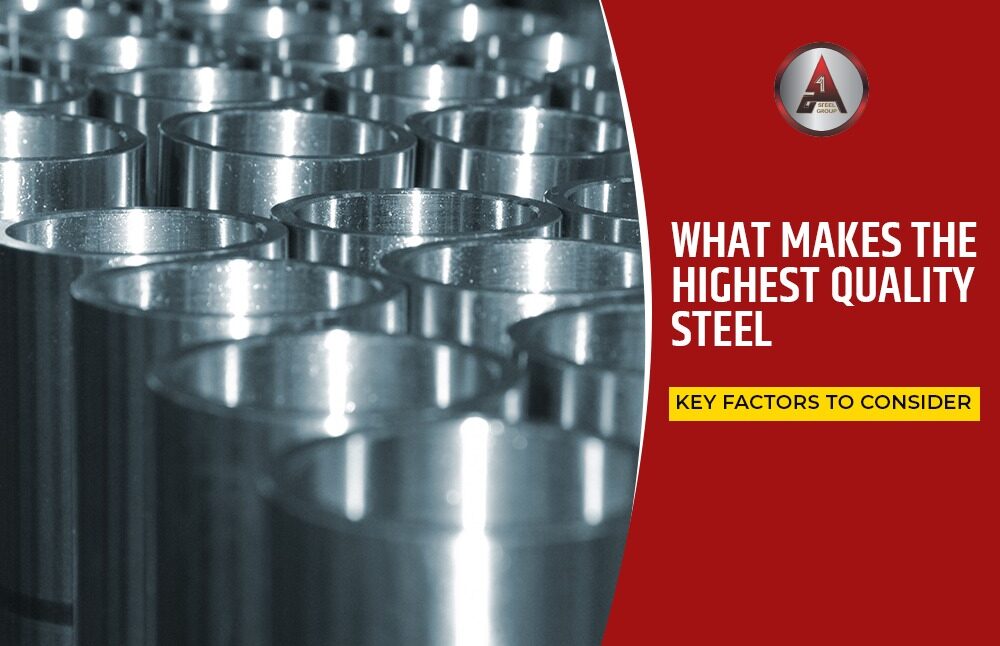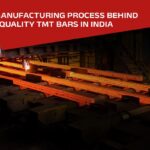Steel is one of the most versatile and widely used materials in the world, playing a crucial role in construction, manufacturing, and various industries. Determining the highest quality steel involves understanding the essential factors that contribute to its durability, strength, and usability. Here, we explore the key considerations to ensure you make informed decisions when selecting steel products.
Composition and Grades
The composition of steel significantly impacts its quality. Alloying elements like carbon, manganese, chromium, and nickel enhance steel’s properties, making it suitable for specific applications. For example, stainless steel pipe is corrosion-resistant due to its chromium content, making it ideal for plumbing and industrial uses. Similarly, galvanized pipe is coated with zinc to prevent rust, offering durability in harsh environments.
Understanding the grades of steel is equally important. Grades are classifications based on mechanical properties, chemical composition, and intended use. Choosing the right grade ensures the steel meets your project requirements effectively.
Manufacturing Process
The manufacturing process plays a pivotal role in determining the highest quality steel. Advanced techniques like hot rolling, cold rolling, and heat treatment improve the structural integrity and performance of steel products.
Products like stainless steel tubing and seamless pipe benefit from precise manufacturing methods. Seamless pipes, for instance, are made without welds, ensuring uniform strength and reducing the risk of leaks. These features make seamless pipes suitable for critical applications in industries such as oil and gas.
Surface Finish
A high-quality steel product often features a refined surface finish. Surface treatments such as polishing, galvanizing, or coating enhance durability and aesthetic appeal. A metal pipe with a polished finish, for instance, offers both visual appeal and resistance to wear, making it suitable for architectural and decorative purposes. Surface finishes also contribute to the steel’s ability to withstand environmental challenges like moisture and temperature changes.
Corrosion Resistance
Corrosion resistance is a critical factor when evaluating the quality of steel. Products like stainless pipe are specifically designed to resist rust and degradation, ensuring a longer lifespan. For applications exposed to moisture, such as plumbing or marine environments, opting for corrosion-resistant materials is essential to maintain performance and reliability.
Availability and Supply Chain
The availability of high-quality steel products often depends on reliable suppliers. Reputable stainless steel pipe suppliers provide a wide range of options, ensuring consistency in quality and timely delivery. Working with trusted suppliers helps minimize risks and ensures access to steel products that meet industry standards.
Application-Specific Needs
Different applications demand different types of steel. For example, construction projects often require the expertise of tmt dealers and tmt bar dealers to source Thermo-Mechanically Treated bars known for their strength and flexibility. Understanding the specific requirements of your project ensures the selected steel aligns with functional and structural needs.
Environmental Considerations
Sustainability has become an essential factor in the steel industry. Choosing steel products manufactured with eco-friendly methods or recycled materials helps reduce environmental impact. Additionally, selecting long-lasting products minimizes the need for frequent replacements, contributing to sustainability goals.
Testing and Certification
Testing and certification ensure that steel products meet quality and safety standards. Look for products tested for tensile strength, impact resistance, and chemical composition. Certified products give you confidence in their reliability and performance, aligning with the promise of highest quality steel.
CONCLUSION:
Understanding the factors that define the highest quality steel helps you make informed decisions when selecting steel products for your projects. From composition and manufacturing to corrosion resistance and application-specific requirements, each aspect plays a vital role in ensuring durability and performance.
For reliable and high-quality steel products, consider partnering with A One Steel Group, known for its extensive range and commitment to industry standards.
Click here to know more about “3 Important Factors To Consider When Forming Steel”



